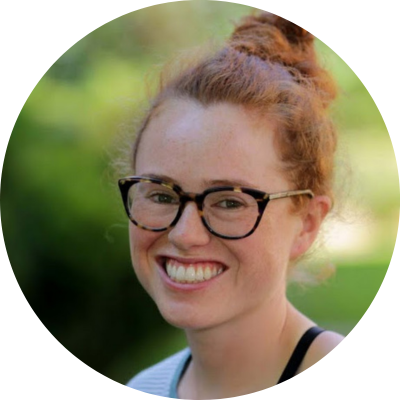Deacon Spotlight: Katherine Albanese
Katherine Albanese (2016, BA in Chemistry, Minors in Art History & Psychology)
Assistant Professor – Department of Chemistry at Wake Forest University in Winston-Salem, NC
Tell us about your current job role and employer. What are you currently working on?

I recently completed my first year as an Assistant Professor at Wake Forest University in the Department of Chemistry. I teach in the Biochemistry and Molecular Biology (BMB) curriculum, specifically focusing on upper-level biochemistry courses. My research lab investigates histone post-translational modifications (PTMs) and uses computational protein design as a tool to answer fundamental questions in this field.
What key personal and/or career experiences led you to where you are today?
My undergraduate experience at Wake Forest was truly foundational. The strong support system, opportunities for independent research, and training in scientific communication set me up for success in graduate school at UNC Chapel Hill. There, I learned to think creatively and work collaboratively. My postdoctoral training at the University of Bristol gave me the freedom to mentor students, collaborate across disciplines, and grow as a leader. These experiences collectively built my confidence and prepared me for an independent academic career.
What is the most challenging aspect of your job? How do you navigate that challenge?
The most challenging part of my role is balancing the many responsibilities that come with being a faculty member—conducting research, teaching, mentoring, communicating science, and contributing to the Wake Forest community. I’m learning to navigate this by staying highly organized, setting clear priorities, and leaning on the guidance and support of my colleagues and mentors.
What advice would you give to Wake Forest graduates about developing their personal life habits after college (finances, health, values, work/life balance)?
Find something outside of your job that brings you joy and helps you reset. For me, that’s running. I’m very passionate about my work, and I’ve been fortunate to find meaning and energy in it—but it’s important to recognize that even something you love can be exhausting at times. Creating space for yourself outside of work is essential for long-term balance.
We know that relationships are important for any kind of development. How do you build and maintain your network?
Networking can feel intimidating, but I’ve found that building relationships through shared connections—especially through mentors—can open many doors. When others respect your mentors, they’re often eager to meet and support you too. I try to be a good listener, ask thoughtful questions, and follow up with people I meet. I also make a point to check in with key people in my network monthly—it’s even scheduled in my calendar!
Tell us about your mentoring relationships. What impact have these relationships had on your career and life?
I’ve been fortunate to have incredible mentors at every stage of my career. Dr. Patricia Dos Santos and Dr. Rebecca Alexander were instrumental mentors during my time at Wake Forest and continue to support me today. Dr. Marcey Waters at UNC Chapel Hill and Dr. Dek Woolfson at the University of Bristol were both deeply influential during my graduate and postdoctoral training. Dek, in particular, has become not just a mentor but also a colleague and close friend. These relationships provided guidance, encouragement, and honest feedback when I needed it most—and reminded me how important it is to have mentors who support both your science and your well-being.
What advice would you give to current Wake Forest students and/or young alumni who are interested in working in your industry?
Graduate school and my postdoc were two of the most meaningful experiences of my life. I love working in academia—it’s not for everyone, but I encourage anyone interested in science to consider graduate school and possibly a postdoc, even if their end goal is industry. These stages offer a depth of training and independence that’s hard to find elsewhere. I’ve learned that the people you work with can shape your entire experience, so it’s important to seek out mentors and colleagues who share your values and support your growth.
What’s next for your career? What future goals or plans are you pursuing?
I’m excited to continue growing as a faculty member at Wake Forest and working toward tenure. It’s been a full-circle experience returning here, and I feel incredibly lucky to do what I love in such a supportive and meaningful environment.
Story published in July 2025. For current updates about Katherine, visit her LinkedIn profile.
